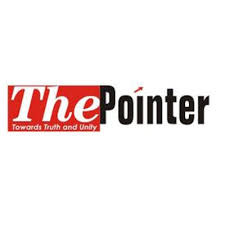By Andy Akeni
A former Dean in the Faculty of Basic Medicine at Delta State University (DELSU), Abraka, Professor Eze Kingsley Nwangwa, has alerted people of the South-South geopolitical zone about the prevalence rate of diabetes mellitus as the highest in Nigeria.
Prof. Nwangwa, raised the alarm during the 107th Inaugural Lecture of the University.
Nwangwa, who quoted from a research finding by Andrew Uloko and his colleagues, said, “The prevalence in the six geopolitical zones of Nigeria is as follows: North-West (3.0 oper cent), North-East (5.9 per cent), North-Central (3.8 per cent), South-West (5.5 per cent), South-East (4.6 per cent) and South-South (9.8 per cent).”
He, therefore, called for the immediate funding of a multi-specialist research to investigate the possible features responsible for the higher than average prevalence of diabetes among the people of the region compared to other zones of the country.
Prof. Nwangwa identified the worrisome level of prevalence while delivering the DELSU’s 107th inaugural lecture titled” Sweet Bitterness: Unmasking the Thief of Man’s Fecundity”, which fully x-rayed diabetes in all ramification and identified it as the cause of erectile dysfunction in man, which breeds marital discord and infidelity.
He, however, called on Delta State Government to include diabetic treatment in its free medical treatment programme due to the burden and cost of medical care for diabetics in families for easy accessibility to diabetic drugs.
Prof. Nwangwa, a specialist in endocrine and reproductive health, who categorized the costly medical treatment into medication (87.3 per cent), laboratory test (33.1 per cent), and glucose strip (23.7 perr cent), described diabetes as “a consequence of interplay between genetics, environment and lifestyle.”
He said that since diabetes was a chronic disorder with multiple organ complications, it was imperative to treat it with some seriousness even as he advocated the opening of a diabetic clinic to be run at least once a week by a specialist diabetologist in the DELSU University Health Centre.
He advised intending couples whose test results showed positive family diabetes should reconsider their decision as such persons have a 70 per cent increased risk of having offspring who may develop the disorder.
Prof. Nwangwa, who counselled people to be mindful of the type of food that will not predispose them to developing diabetes such as coconut and other good fruits, however urged diabetics to shun honey due to its negative effect on the blood glucose level.
Besides, he warned individuals against the act of exposing plastic bottled drinks to sun due to what he referred to “as phthalate content which may affect male reproduction.”


